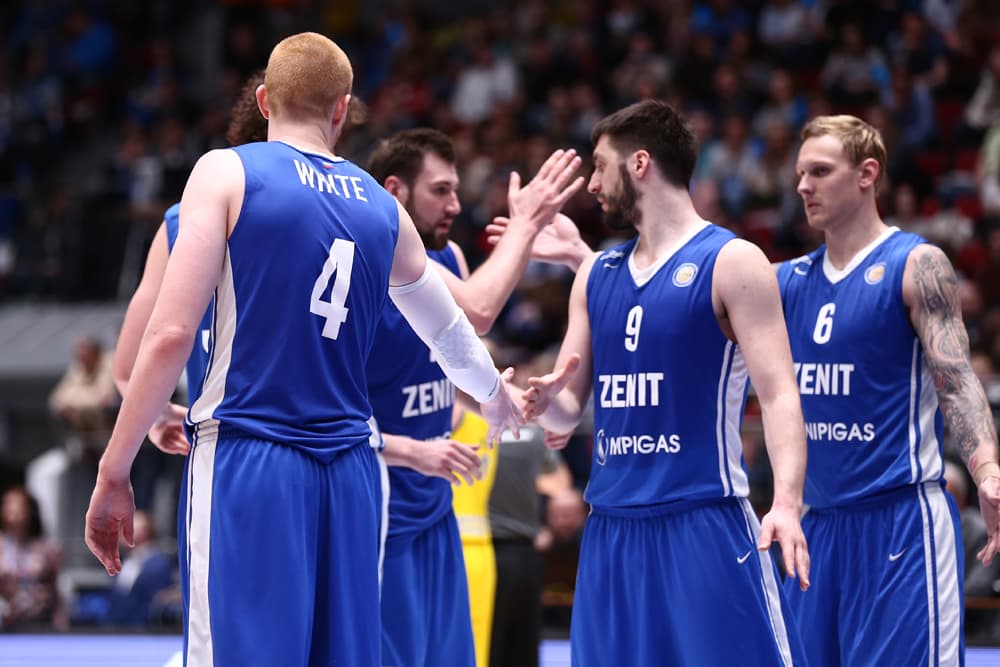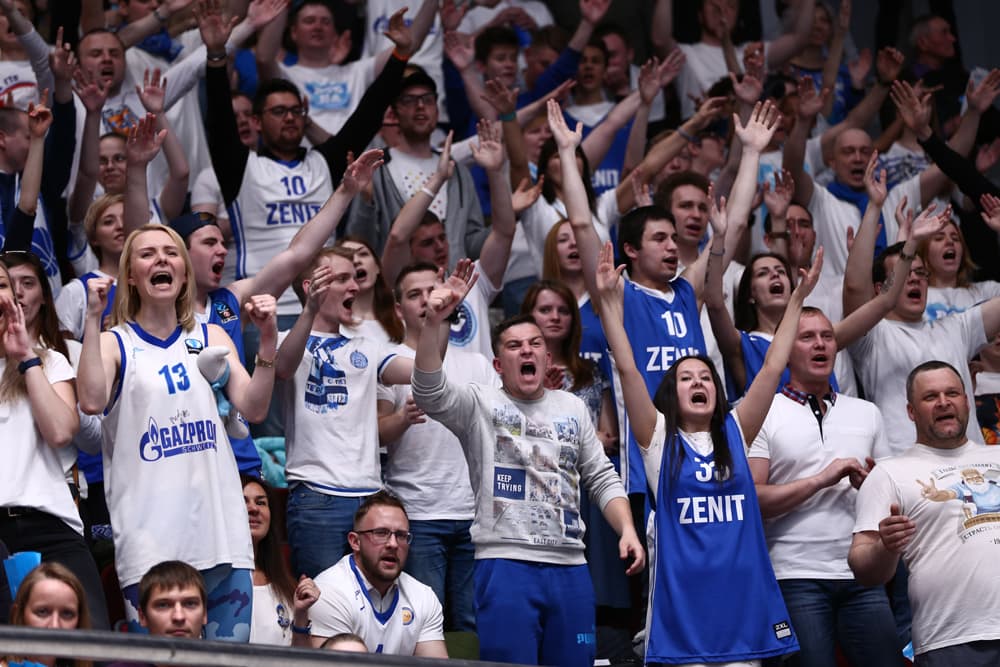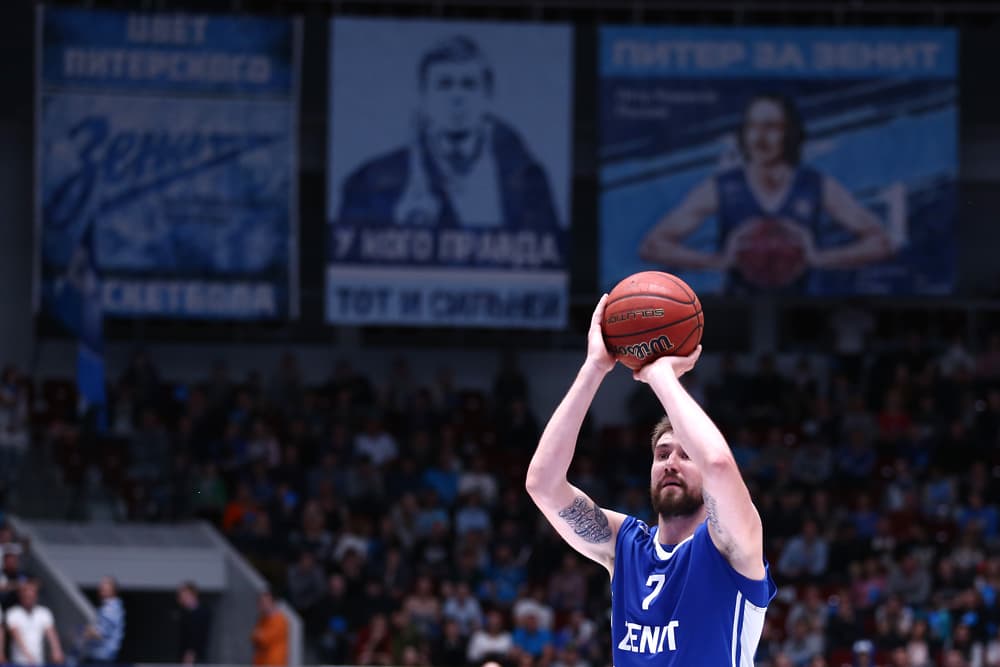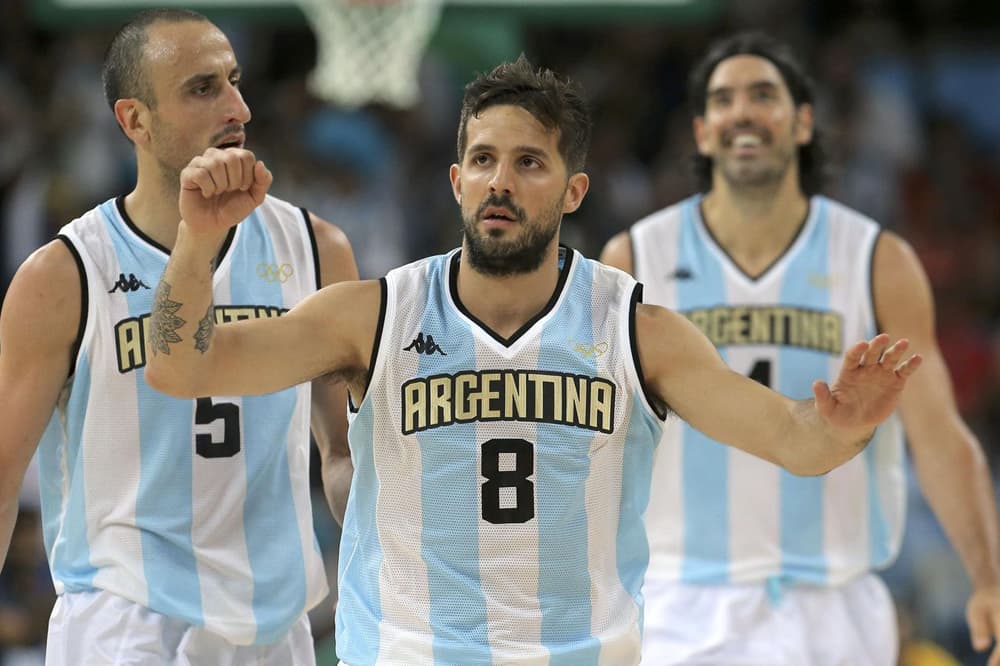Dmitry Gerchikov breaks down the reasons for St. Petersburg’s complete rebuild and makes some predictions about the club this season.
It’s been a stressful summer for Zenit fans. Instead of pleasant thoughts about vacation and an escape to the beach or somewhere else nice, the club website has been on constant refresh as the team’s core left one by one. Virtually every key contributor from last season’s VTB United League semifinalists exited St. Petersburg within days of the summer transfer window opening.
Beginning with crucial cogs like Markovic, Timma, Landry and ending with talented role players in Toolson, Mbakwe, White, Zenit said goodbye to a large chunk of the roster. The club also had a shakeup in the front office, adding to the uncertainty surrounding next season, both from a business and competitive standpoint.

Not surprisingly, Zenit fans started to sound the alarm. The team faced a similar predicament several years ago, before packing its bags and leaving Lyubertsy for St. Petersburg. Despite an attractive style of play and smart free agency strategy–which focused on developing young Russians and bringing in high value foreign players–Triumph’s financing abruptly disappeared. Only an intervention from Gazprom and subsequent move north was able to rescue the club from dissolution. This time around, Zenit had more secure financing and solid infrastructure, but the rapid exodus led some to worry that even worse news was just around the corner.
In our opinion, however, there was no need to panic so soon. Of course, you can understand where the fans were coming from, but Zenit’s strategic, focused approach indicates that the situation is much different this time around. It appears the club was very intentional in free agency and decided a fresh start was necessary.
Let’s draw a few parallels with the NBA. Teams are constantly evaluating the level of talent on the roster to determine how high their ceiling might be. If they feel have enough potential, they’ll try to upgrade via trades or free agency. If not, the roster gets blown up. The hunt begins for a new franchise player and the team’s entire approach often changes. The main difference with European clubs is that the turnover tends to happen much more quickly. With no salary cap, short-term contracts, an open market and a huge number of open jobs, teams are able to build a roster from scratch in a manner of months. Sometimes, if the budget is big enough (see Fenerbahce) or very smart selections (see Loko-Kuban in 2016), rebuilds can bear fruit with remarkable speed.

In the past, Zenit avoided such risky tactics, looking to retain players that fit Karasev’s system at any cost. When someone did depart unexpectedly, it was generally because Zenit simply couldn’t afford to pay enough. That was the case with Stefan Markovic’s move to Khimki and Walter Hodge’s exit after a big season in Russia. But following the 2017 playoffs, even St. Petersburg’s conservative front office began to have doubts about the roster’s toughness. To lead 2-0 in the biggest series of the season (with a spot in the EuroLeague on the line), only to give it away to a top rival… Questions needed to be asked about whether or not drastic change might be needed.
Given what transpired in the offseason, it’s obvious what decision was made. From one-year players Mbakwe and White to club stalwart Kyle Landry (who recently inked with Buducnosti), the departures came in fast and heavy. Sergey Karasev was the only untouchable player on the roster. Once the flurry of activity died down, fans were left to wonder what approach Zenit would take in rebuilding the team.

In the end, seven new players were signed, including six foreigners. Zenit went the conventional route with the rebuild, but hopes to build something unique in the northern capital.
The pair of point guards that joined the team should help bring balance in the backcourt. Last season, Zenit struggled when Markovic was not on the court, whereas Laprovittola and Reynolds can spell each other when necessary. At the same time, the two guards aren’t known for defense. But Karasev did load up on other perimeter defenders, which should help compensate. Along with the Voronov acquisition, it’s clear the coaching staff wanted to make big changes in the backcourt.
The frontcourt, meanwhile, features a nice division of roles and balance. Gordon will be asked to be aggressive on offense and on the glass, while helping out on fast breaks. Whittington will be a stretch four, giving Zenit the ability to go small and threaten to shoot the ball from every position. Simonovic, meanwhile, will provide even more offense and should be an ideal fit for Karasev’s system.

There’s one other important thing to add. The club has been intentional about bringing in players not only with European experience, but also exposure to big stages and an ability to play under pressure. The newcomers have played in the EuroLeague and top domestic leagues, where they shouldered plenty of responsibility. Some of the struggles they’ve had to overcome are mind-blowing: look at Kuric’s story.
Zenit is trying to ensure it doesn’t have a repeat of last season’s playoff collapse. Give them credit, they are headed in the right direction. Now all that’s left is to wait for the start of the season and see if St. Petersburg is ready to go once it meets real competition in the VTB United League and EuroCup.






















